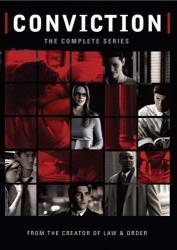
Question: I don't understand why Pullo is so angry with Vorenus and thinks he needs to apologise. Having fought in Caesar's army for as long as Pullo has he would be very well aware of the repercussions for what he did, why would he blame Vorenus for abiding the law and doing what is required of him as a centurion?

Question: What's with the show's title and why does their receptionist rhyme, and why'd she hire such a dork for a partner?
Answer: The show's title, "Moonlighting" was a take-off the agency's name, the "Blue Moon Detective Agency." The owner, Maddie Hays, a former model, renamed it after a shampoo brand she was once a spokesperson for. She did not hire her partner, David Addison. He already worked at the agency when Maddie took it over. The agency was struggling financially, and David convinced Maddie, who knew nothing about being a detective, that if she made him a partner, they could make it successful. Agnes, the receptionist, had a very quirky personality, and simply chose to use rhymes when answering the phone.

Question: At the end of the episode, where Melinda helps that lady (who meets the guy who got her dead fiance's heart), what was the man at the end of the episode (who was laughing and seemed to be a spirit) supposed to be about?
Answer: This "spirit" appears in several episodes throughout the rest of the season including the season finale. He's a "bad spirit" that is intent on keeping souls trapped on Earth. With the death of Andrea (her business partner) he wanted to make a deal with Melinda, to give him HER soul to release everyone else including Andrea to cross over.

Question: How is it that Stevie is so old when Nancy gets out of prison? He was an infant when she went in and she did 3 years.
Answer: It's not uncommon for TV shows to suddenly "age up" baby/toddler characters in order for them to have more narrative purpose. Other examples of shows I can think of that did this are "Step by Step," "Last Man Standing," "Boy Meets World," and possibly "Dexter."

Question: When Sam reads someone their rights why does someone else tell him he's saying it wrong? This happens few times in different episodes.

Question: Two questions. 1. Was there some kind of contributing factor that made Nick want to be human again and if so what was it? 2. In one episode Janette is discovered to be human again. How did she accomplish this?
Answer: Nick was sick and tired of being an immortal bloodsucker. He wanted to be human, fall in love, get married, have children, grow old and die. As for Janette, according to her, she fell in love and the passion she felt "cured" her of her blood lust.

Question: When Jonas's wife descends the stairs in her nightgown, you can hear her shoe soles hitting the stairs. I was surprised to see her wearing grey stiletto high heel pumps! As she exits the stairs and enters the kitchen, these heels are fully visible on both feet from the rear. Was she that much shorter than her co-star?
Answer: Stacy Keach, who portrayed Jonas Steele, is an imposing figure who stands just upwards of six feet tall. Julia Duffy, the actress who played Mary Hale Steele, is a diminutive five feet even - a full foot shorter than her on-screen husband. Though high heels have been around since the mid-16th century, the stiletto style heel didn't begin to come into play for fashion until the late 19th century, when they were mainly used as accessories in fetish art. They didn't become vogue for women's wear until the early to mid-20th century. It is unlikely a stiletto-style heel would have been available to, let alone be worn with a nightgown by a woman of the period.

Question: On Law & Order: SVU the character Alex Cabot had to enter the witness protection program. How did they bring her back for the show Conviction?
Answer: It was never explained on the show. The series only lasted 13 episodes so they didn't have time to go into how or why Cabot returned.

Question: Since they had friends why couldn't the Stivics move in with them so they wouldn't have to put up with Archie?
Answer: Yes, Gloria and Michael have friends, but when they got married they decided it was best to live *rent free* with Edith and Archie, while Mike was going to college. Living with friends rent free, for quite a few years, is not an easy thing no matter how close the friends are with them. Since the Stivics needed their money to pay for the tuition and its other costs, their living arrangement made it all easier to deal with. Hence the Archie and Mike scenarios.

Question: Of the main cast, do any of the actresses claim to be same-sex orientated in real life? Which ones? I've Googled this, and only found speculations rather than actual answers.
Answer: I read Diva magazine which is a British lesbian magazine - Leisha Hailey and Daniela Sea have both given interviews and have stated without question that they are lesbians. Despite much lesbian disappointment Katherine Moennig will not confirm her sexuality, stating it is personal and not an issue. Although it was once stated by an american publiction Jennifer Beals 'outed her', once published this was denyed by Jennifer stating they had twisted her words. Jennifer Beals has been married twice, Laurel Holloway according to her official website is married, but has stated in many interview since the L Word began that she is bisexual. Mia Krishner is most confusing of all, various interviews she has claimed different things - bisexuality, heterosexuality and bicuriousity...but notably takes lesbian/bisexual/transgender roles. Pam Grier, Rachel Shelly and Erin Daniels have categorically stated they are heterosexual. Janina Gavanker has never made any comment about her sexuality, although all speculations made on Google are that she is straight. Information on Rose Rollins is sparse and wholly speculation. I can add though that Shane's stalker in season one called Lacey is played by Tammy Lyn Micheals, who according to both parties' official websites has been 'married' to Melissa Etheridge since 2003, they also have children.

Tiger Left, Tiger Right - S2-E6
Question: The episode first aired October 1964. How could a Ford Mustang be seen in the episode if that car wasn't available until April 1965?
Answer: Production vehicle models aren't in sync with the calendar year. The '65 Mustang began production in March 1964 and first sold in April 1964, before it was "introduced" the following year. I don't know which model was seen in the episode, but the 2+2 fastback was sold in September 1964. The 1964 film "Goldfinger" uses a 1965 Mustang as part of Ford's product placement. Basically, in the 1930's, FDR ordered automakers to release vehicles in the fall of the preceding calendar year "as a means of facilitating regularization of employment in the industry." Now, automakers can release new models as early as Jan 2 of the preceding year.

Question: What was the reason that several major American cities were attacked with nuclear weapons?
Answer: According to Wikipedia: "It was a cross-section of 'domestic militia, anarchists, and religious fanatics' – terrorist groups that would never ordinarily collaborate, ideologically or politically. The only thing that connected them was the desire to take down the federal government of the United States. The entire plan was orchestrated by someone with deep resources, an ability to coordinate diverse groups, and by all indications, an American. After someone (believed to be Thomas Valente) tipped off the terrorists about the government's knowledge of the plot, they moved up the timetable for the attacks."

Question: Why and how is Laura Palmer killed?
Chosen answer: Laura was killed by her father Leland, whilst he was apparently possessed by the spirit BOB. The exact manner of her murder is not clear, as several injuries found during her autopsy we later discover occurred during a separate incident before her murder. We know that she was beaten and killed in an abandoned train car, and her body was then wrapped in plastic and thrown in the river.
Answer: Why? Because her father was possessed by an evil entity. How? Blunt force trauma.

Question: Why does everyone call Jonathan R-M 'Harry'? Isn't he Henry VIII?
Answer: While Harry can be a given name, it is also a standard "informal" version of the name Henry. For example, in the UK Royal Family, the younger son of Prince Charles, officially named Prince Henry, is commonly referred to as Prince Harry.

Question: Did this show have an episode in which Wayne was stood up by a date, or he couldn't convince a girl to go out with him? Then Kevin told him that the girl thinks he is pathetic. I described this moment in the "General Questions" section here, and someone said it might be this show. Thanks.
Answer: Sounds like the episode 'Hiroshima, Mon Frère', season 2, episode 8.

Question: Did no one get surprised at the price of the Call Girl at the end of the episode? For spending a whole evening and night at Draper's house, the call girl charges $25, about $190 in modern money. Isn't that weirdly low?

Episode #1.8 - S1-E8
Question: As we know Gene died in 1953 so how did he save Alex in 1981 from the car bomb, he was already dead and in the purgatory world?
Answer: Have you finished watching the entire series? I don't think it's fair to answer this for someone who hasn't.

Question: What episode of Jem is this? In it Jerrica who had a secret identity was worried because her boyfriend liked both her and Jem. She got advice from Synergy who told her to become a third identity to test him. She did, and he fell for her too. She was upset until Synergy then said that this actually meant that he really loved her because he must love her soul, because he loved her in any form. I looked up the series on the internet and can't find any episode described this way. Maybe this was a B story of an episode? Could someone tell me what season the episode is in and what the episode is called?
Chosen answer: This was an episode from Season Three, entitled "Midsummer Night's Madness."

Question: What exactly did Jonathan and Maddie give to the tramp in exchange for information?
Chosen answer: It was a bottle of turpentine.
Methylated spirit, always coloured purple.
Answer: It was actually mouthwash.

Hit and Run - S2-E5
Question: Towards the end of this episode the squad car has to double park so Regan can use a phone box, as Regan gets out of the car a van has to drive round the squad car and the driver sounds the horn, Regan gesticulates and shouts "up yours" at the van driver. I wonder if this was scripted or was a random moment and John Thaw was ad-libbing?
Answer: Scripted.
Answer: Its Pullo's nature to resent people of higher standing than him. His jealousy of Vorenus in later episodes, which in part leads to their falling out, is proof of that. From Pullo's point of view, Vorenus just got better breaks to get where he is in the army and so, isn't really his superior. That, plus his natural arrogance is explantion enough for his behaviour in spite of the fact that he broke the rules and was being fairly punished.
roboc